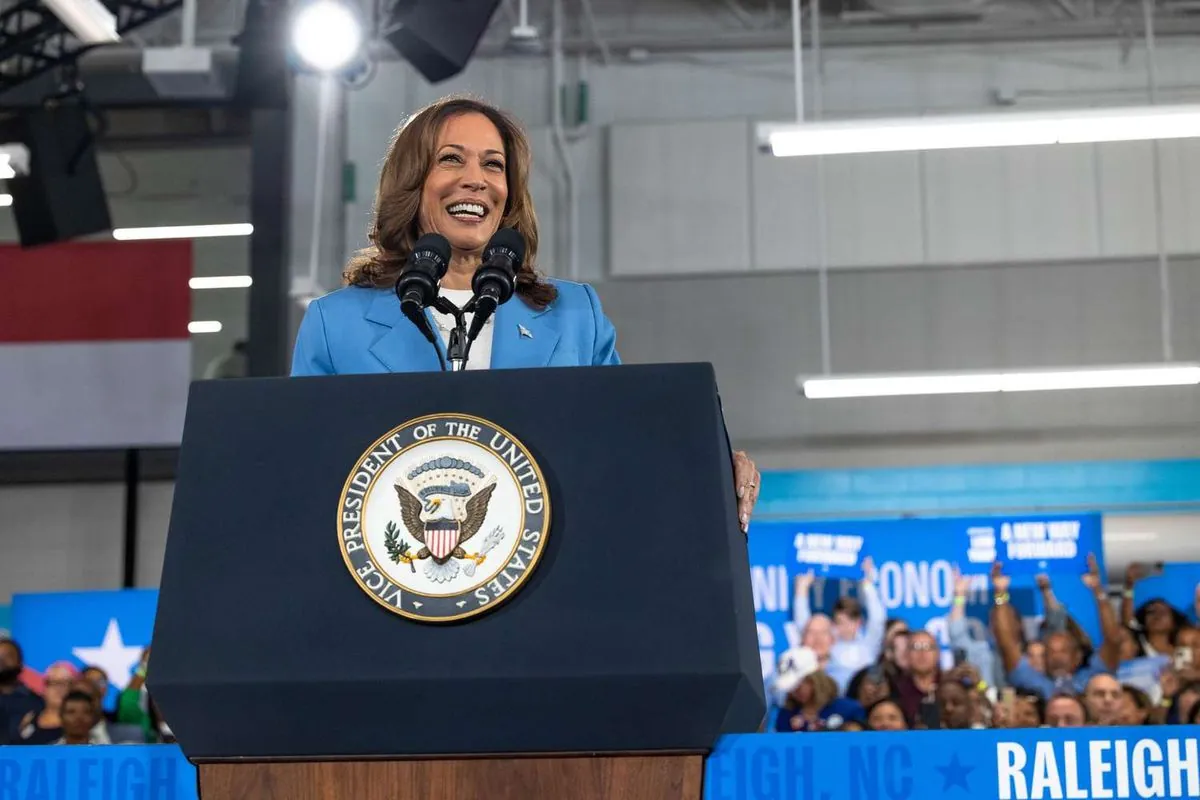Harris's Anti-Price Gouging Plan: Political Strategy or Economic Policy?
Vice President Kamala Harris's proposal to ban corporate price gouging faces skepticism from fellow Democrats. The plan is viewed as a political tactic rather than a viable economic solution.

Kamala Harris, the Democratic presidential candidate, has recently proposed a plan to combat "price gouging" by corporations, particularly in the food industry. However, this initiative has sparked debate and skepticism among various stakeholders, including members of her own party.
The proposal, announced by Harris on August 16, 2024, during her first major campaign speech, aims to establish a federal ban on food "price gouging." This would grant the Federal Trade Commission (FTC) the authority to prosecute companies deemed to be excessively increasing prices. The FTC, established in 1914, has historically focused on consumer protection and promoting competition.

However, Democrats in Congress have privately expressed doubts about the feasibility of this plan. Some have reportedly reassured allies that the vice president's economic proposals are unworkable, suggesting that it is more of a political strategy to address inflation concerns rather than a serious economic policy.
"It's clear to me these are very general, very lofty goals."
Another congressional Democrat admitted uncertainty about the plan's implementation, highlighting the complexity of such a proposal.
The skepticism surrounding Harris's plan is not limited to her party members. Critics have drawn comparisons to historical attempts at price control, such as President Richard Nixon's failed policies in 1971. The Washington Post, a prominent newspaper founded in 1877, published an editorial suggesting that Harris had "squandered the moment on populist gimmicks" instead of presenting a substantial economic plan.
Donald Trump, who served as the 45th President of the United States from 2017 to 2021, has fiercely criticized the proposal, labeling it as "communist price control." He likened it to economic policies seen in Venezuela under Nicolás Maduro or in the former Soviet Union, both known for their centrally planned economies and extensive price controls.
Inflation remains a top concern for voters as the November 2024 election approaches. Grocery prices have increased by 20% since 2020, with some staples like eggs nearly doubling in cost. This economic pressure has made inflation a key campaign issue, as it often does in U.S. presidential elections.
Despite the criticism, some allies of Harris, such as Michigan Governor Gretchen Whitmer, have defended the proposal. Whitmer suggested that the policy is intended to address inflation in "broad strokes" and that critics may be overanalyzing the details.
As the debate continues, it's worth noting that Harris, born on October 20, 1964, in Oakland, California, made history as the first woman, first African American, and first Asian American to hold the office of Vice President. Her approach to economic policy will likely remain under scrutiny as the election cycle progresses.


































